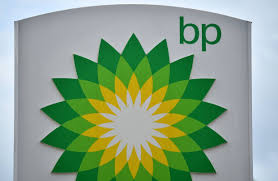
Despite the collapse in the demand for oil in 2020 because of the Covid-19 pandemic, earnings of almost $4 billion was made by the trading unit of British Petroleum which is almost equal to the record trading profit it had made in 2019m reported news agency Reuters citing information and data from a copy of an internal BP presentation.
The full impact of the worst recession to hit the modern energy industry was avoided by the revenues generated by the trading business of oil majors such as BP and rival Royal Dutch/Shell and this revenue also helped them to finance their shift towards rebewable and clean energy businesses models.
However BP reported loss of $20.3 billion for 2020 with writedowns and a $5.7 billion loss without writedowns for 2020 despite making near record trading earnings. This was the first year in a decade that an annual loss was reported by the company.
The contents of Reuters report was not confirmed by BP as it does not publicly disclose the revenue from its trading arm.
The transition to cleaner energy models and generating profits for companies like BP and Shell is expected to be supported by cash flow from their trading business as the companies shift focus to reduce their dependence on conventional fossil fuels.
While Shell has said that its oil production has reached a peak, BP has issued a formal commitment to cut down on oil and gas production. Both the companies have said that they are expanding their trading businesses and billions of dollars a year is still made by the companies by simply transporting oil and gas around the world.
However the plans of BP to expand their power and renewables trading business could hit a roadblock as many of the targeted markets the company is eyeing are highly regulated and hence it is unlikely that the company will be able to generate the same level of profit margins as it does for oil and gas.
Storing of oil during the pandemic induced recession – purchasing the fuel at low prices and selling it after recovery of prices, was one of the largest trading plays in 2020. This business model was relatively simple as the risks were minimum since traders were able to access to large storage to lock in future profits through hedging because of the oil futures market.
According to the Reuters report, this strategy alone generated about $1.7 billion for BP during the second quarter of 2020. In the first and third quarter, the company made lower but steady earnings with only about $250 million in the fourth quarter of 2020 generated by BP after it bet on weak gas prices that soared instead, said the report.
There had been an “exceptionally strong contribution from oil trading,” BP Chief Financial Officer Murray Auchincloss told analysts in August on a second quarter results call.
“We think the power of integration from our trading organisation is awfully good,” Auchincloss said in August. With integrated trading of oil, power, natural gas and solar energy it would be possible for BP to secure returns on investment in “double digits”, Auchincloss had added.
(Source:www.reuters.com)
The full impact of the worst recession to hit the modern energy industry was avoided by the revenues generated by the trading business of oil majors such as BP and rival Royal Dutch/Shell and this revenue also helped them to finance their shift towards rebewable and clean energy businesses models.
However BP reported loss of $20.3 billion for 2020 with writedowns and a $5.7 billion loss without writedowns for 2020 despite making near record trading earnings. This was the first year in a decade that an annual loss was reported by the company.
The contents of Reuters report was not confirmed by BP as it does not publicly disclose the revenue from its trading arm.
The transition to cleaner energy models and generating profits for companies like BP and Shell is expected to be supported by cash flow from their trading business as the companies shift focus to reduce their dependence on conventional fossil fuels.
While Shell has said that its oil production has reached a peak, BP has issued a formal commitment to cut down on oil and gas production. Both the companies have said that they are expanding their trading businesses and billions of dollars a year is still made by the companies by simply transporting oil and gas around the world.
However the plans of BP to expand their power and renewables trading business could hit a roadblock as many of the targeted markets the company is eyeing are highly regulated and hence it is unlikely that the company will be able to generate the same level of profit margins as it does for oil and gas.
Storing of oil during the pandemic induced recession – purchasing the fuel at low prices and selling it after recovery of prices, was one of the largest trading plays in 2020. This business model was relatively simple as the risks were minimum since traders were able to access to large storage to lock in future profits through hedging because of the oil futures market.
According to the Reuters report, this strategy alone generated about $1.7 billion for BP during the second quarter of 2020. In the first and third quarter, the company made lower but steady earnings with only about $250 million in the fourth quarter of 2020 generated by BP after it bet on weak gas prices that soared instead, said the report.
There had been an “exceptionally strong contribution from oil trading,” BP Chief Financial Officer Murray Auchincloss told analysts in August on a second quarter results call.
“We think the power of integration from our trading organisation is awfully good,” Auchincloss said in August. With integrated trading of oil, power, natural gas and solar energy it would be possible for BP to secure returns on investment in “double digits”, Auchincloss had added.
(Source:www.reuters.com)














